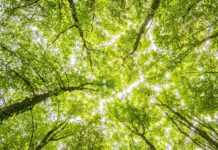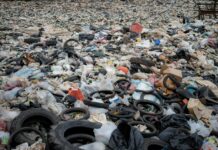By Mary Mwendwa
Nairobi, Kenya: Kenya has for the first time in history released the largest animal census report. The census counts all animals both on land and water to help in conservation plans.
Kenya’s Minister of Tourism and Wildlife, Hon. Najib Balala, officially released the report today during a press briefing at the International Union for Conservation of Nature IUCN World Conservation Congress in Marseille, France.
Themed ‘Count to conserve’, the census conducted between May- July 2021 counted over 30 species of mammals, birds, and marine species in various ecosystems, covering nearly 59 percent of Kenya’s landmass.

According to the report, Kenya has a total of 36,280 elephants, a 12-percent jump from the figures recorded in 2014, when poaching activity was at its highest. Speaking during a press briefing at the IUCN Congress, Hon. Balala said: “This national census is the first wildlife survey of its kind and scope in Kenya. It is fully financed by the Kenyan government. Obtaining this level of information allows for better policy, planning, and assessment of areas that require focus in our interventions to maintain or improve our national conservation efforts.”
Kenya in East Africa is home to vulnerable and endangered species that include lions, elephants, giraffes, and rhinos.
It is also a transit route for migratory whales, dolphins, and endangered turtles. In March 2021, IUCN warned that poaching and habitat destruction, particularly due to land conversion for agriculture, was devastating elephant numbers across Africa.
The survey counted 1,739 rhinos, 897 critically endangered black rhinos, and 840 southern white rhinos, and said the tourist magnet Maasai Mara National Reserve was home to nearly 40,000 wildebeest. “The results of the census report could greatly improve Kenya’s conservation efforts for future generations.

Kenya, like several of its African peers, is trying to strike a balance between protecting its wildlife while managing the dangers they pose when they raid human settlements in search of food and water.” said Kenya Wildlife Service (KWS) Director-General Brigadier (Rtd) John Waweru Congratulating Kenya for this great milestone, IUCN Regional Director for Eastern and Southern Africa, Luther Anukur said: “IUCN is honored to have Kenya and other Africa State Members participate at the World Conservation Congress in Marseille.
This forum allows for government, civil society, indigenous peoples, business, and academia to share experiences and explore opportunities for collaboration. Kenya’s example is one that will inform policy and action towards wildlife conservation.
It is an example that many countries in Africa can learn from.” Kenya is committed to developing innovative mechanisms for sustainable conservation, identifying conservation hotspots, and developing strategies to rally public support and partnerships to grow wildlife numbers.
KWS invites partners to work with it in developing strategies to increase the number of endangered and threatened species.
Kenya’s active involvement in IUCN Governance as a long-standing Member of IUCN through the Ministry of Tourism and Wildlife, Kenya is also actively involved in the governance of IUCN.
During the 2021 World Conservation Congress, Kenya’s Mr. Ali Kaka who is also the current IUCN Africa Councillor and Vice president is seeking re-election as a councilor.














